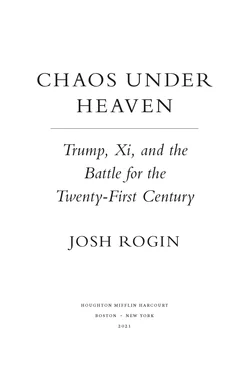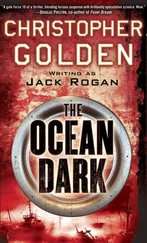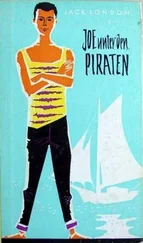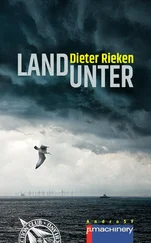This was Flynn’s proudest public moment: the comeback of comebacks. The crowd was happy to ignore the fact that his remarks contained no real substance and revealed nothing about how Trump would run US foreign policy. Flynn praised Rice’s “grace” and “elegance” and rattled off the platitudes that had come to serve as the way Trump people spoke to DC establishment types to make their lack of strategic coherence digestible. He threw out catchphrases like “peace through strength,” using alliances as a multiplier, “the unapologetic defense of liberty” as a “core element of American exceptionalism,” and said not much else of substance.
In this, Flynn wasn’t alone. McFarland, who had been named by this point as Flynn’s incoming deputy, rambled on about everything and nothing at the same time in her panel at the event. She made up a statistic that 40 percent of Americans had long since checked out of the foreign policy discussion in our country. She said these were the Americans whom Trump was bringing back into our politics, by responding to their demands. Like Flynn, she rattled off promises to uphold American values, strengthen alliances, and preserve American leadership.
“So I would say, all of you, relax. It’s going to be great. We are going to make America great again,” she told the nervous crowd. “And welcome along for the ride.”
2
All Aboard
Just shortly after noon on January 20, 2017, on the steps of the US Capitol building, Donald Trump delivered his first address as the newly inaugurated president of the United States. Five blocks away, a mix of diplomats, officials, and VIPs from various countries watched from a posh reception on the rooftop of the Canadian embassy. As Trump began speaking, these onlookers lowered their Bloody Mary cocktails and cups of poutine to listen. The guests were the diplomatic and foreign policy elite who had worried during the campaign about Trump’s professed plans to abandon the international liberal order the United States had led since World War II. They were about to have their worst fears confirmed.
As millions of onlookers gaped, Trump scowled and barked about the end of “American carnage,” lashing out at unnamed foreign countries that had allegedly stolen American jobs, sent immigrants over the United States’ borders, and taken dollars away from its citizens. The new president promised to even the scales, and then some. “From this day forward, a new vision will govern our land,” he bellowed. “From this moment on, it’s going to be America First.”
The only difference between this speech and those given during Trump’s campaign rallies was that now Trump had the power to fulfill his pledge. Trump saw the American promises to champion values like democracy, human rights, and free markets as foolish in a world where every country had to fend for itself and might made right. This was the worst possible time for such a retrenchment, in the eyes of America’s allies, who needed more US help to combat rising nationalism at home and expanding authoritarianism worldwide. For over a year, Washington insiders had been promising their foreign visitor friends in DC that there was no way Trump would win.
Every foreign government had been unprepared for Trump’s election. Now, as he took the helm of the most powerful country on earth, his fellow heads of state—like many DC insiders—were panicking. They had no idea how to navigate the Trump team or which lobbyists and consultants to pay to help them do it.
Beijing’s position was more precarious than the others. With slowing economic growth at home and ambitious investment plans abroad, an economic confrontation with the United States—which is what Trump was promising—was not in their carefully crafted plans. Like most observers, they had expected Hillary Clinton to win—and although the former secretary of state had not exactly shied away from criticizing China, with her in the Oval Office at least Beijing would have known what they were dealing with. Now, they needed to rebuild their network from scratch, and quickly. They had Jared Kushner, which was a start—but they had no way of knowing whether he would be enough to offset the hawks on Trump’s team.
Clipped Wings
In the earliest days of the Trump administration, the hawks knew it would be a fight to control the China policy, but they felt up to the task. Steve Bannon, Peter Navarro, and Stephen Miller were all proven loyalists who had earned their Trump bona fides during the campaign and knew the president well. They believed the key to success was to make a more confrontational China policy happen right out of the gate. They knew that Kushner and Steven Mnuchin and Gary Cohn didn’t agree with their views on China, but they didn’t think they would be able to stop what they had in store. The hawks felt confident that Trump wouldn’t immediately turn his back on a key promise from his campaign—and they had a plan to ensure that he didn’t.
They could be forgiven for their assumptions. After all, Trump had run on a promise to disrupt the US trade relationship with China. The basic plan to make that happen—tariffs and all—had been laid out clearly in Trump’s campaign speeches. Unlike Republican Party officials who hadn’t been involved before the election but were scooping up all the staff jobs at the White House, the China hawks were prepared: they had a well-developed strategy to disrupt the way Washington and Beijing did business.
Trump went ahead and withdrew the United States from the almost complete negotiations for the Trans-Pacific Partnership on his fourth day as president. The Democrats were appalled he hadn’t bothered to review it formally before withdrawing, at least. The free traders inside the White House knew the partnership was a lost cause, so they kept their powder dry for the fights they knew were coming down the line.
Reince Priebus may have ultimately landed the job of chief of staff, but Bannon was named chief strategist—a job he got to define. During the transition, he and Miller prepared a series of executive orders they planned to have Trump sign before the bureaucracy even realized what was going on. One of the first ones gave Bannon a seat on the principals committee of the National Security Council (NSC), the most senior level of national security decision-making. When the media learned that high-ranking military officials had been replaced on the NSC by the head of Breitbart News, there was a public outcry; Bannon would never actually attend an NSC principals meeting. H. R. McMaster formally removed him from the committee a few months later.
Bannon still had allies on the NSC staff, however, and meanwhile started his own policy shop that he called the Strategic Working Group, where he hoped to import his own national security staffers, including figures like Sebastian Gorka, an anti-Islam Hungarian American “expert” whose wife was working as a Trump appointee in the Homeland Security Department. Bannon intended to bring in Michael Pillsbury as the China guy in the group while Pillsbury waited for a sweeter posting. But the group never materialized, denied the lifeblood of any bureaucracy—money.
Bannon had a separate plan with Navarro and others to set up a front line of China hawk ambassadors in Asia, not the donors and politicos who typically get these assignments. Pillsbury was to be appointed ambassador to Singapore (or be sent to Hong Kong or Taiwan, depending on who is telling the story). Admiral Harry Harris, who was finishing up a stint as the head of US Pacific Command, was to be sent to Australia. Council on Foreign Relations scholar Ashley Tellis would represent America in India.
Bannon felt that China had declared all-out economic war on the United States, and that previous presidents had been too stupid or scared to fight back. But he didn’t see China as just a foreign policy issue. He also wanted China to be the rallying cry for his domestic political movement.
Читать дальше











